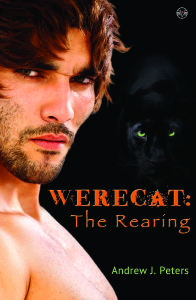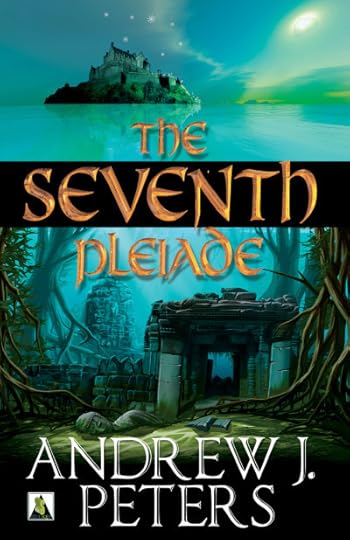Andrew J. Peters's Blog, page 8
January 9, 2017
The Lost Histories, a poem

It’s been a long time since I tried my hand at poetry, possibly for good reason. My feelings about poetry are similar to my feelings about dancing. I have tremendous admiration for those who can do it, but its artfulness always seems to be out of my grasp. Just ask the few people who have witnessed me dance. The problem is not merely a lack of rhythm, though that’s definitely apparent. It’s also a lack of confidence with my own body, which leads to a stunted sort of bouncing around, shoulder shrugging, and an occasional loss of balance.
Alcohol helps a little. So I’ve been told.
The last time I enjoyed writing poetry was all the way back in eighth grade. That was when I had the opportunity to take my first creative writing class. When we got to the poetry unit, I recall that most of us were skeptical. In my middle-class, suburban junior high, back in the 1980s, poetry was not cool. It was sappy, or pretentious, something that depressed, lovesick girls did in their depressing diaries. Well, to be fair, I kept a depressing diary. But I didn’t write poetry in it, and I certainly would never share my feelings with the world. Besides, I hardly related to the male poets that we read: Robert Frost, John Donne, William Butler Yeats. First of all, they had things to say that were much more profound than anything I could come up with. Second, the way they said those profound things was much too elegant and clever for my feeble brain.
I dreaded having to write poetry myself and figured I would just fake it. Until we read poems by e.e. cummings, and I saw that poetry could be funny. I suddenly became a prolific poet.
Sometimes I wish like mad I had held onto my work from back then. I’m sure I would get a good laugh over how juvenile it was, however appropriate for my age at the time, but I also remember reveling in the creation of the absurd, and inventing parodies of “high brow” poetry. My teacher totally encouraged my insipid verse, maybe in surrender to my refusal to write anything else, maybe taking a broad view of creative expression. He was a pretty cool guy. In any case, I discovered I really did like poetry. That year, I looked forward to creative writing class every day. It became a place where, unexpectedly enough, I could be myself.
Nowadays, I practically never indulge in writing humorous poetry (though perhaps I should). I’m still intidimated by poetry generally, but I recognize that it’s important for me to read and write, both to better understand the world and to improve my prose. I don’t ever think I’ll be accused of being an especially stylish or lyrical writer, but poetry helps me to appreciate the flow and rhythm and imagery of writing. From time to time, I do it as an exercise, with nearly the same foot-dragging aversion of going to the gym. Like I said above, it’s been a long time, but you can see some of my past poetry here, and here, and here, and here, and here from the early days of my blog.
I’m working on the sequel to The City of Seven Gods, which is part of what I’m calling The Lost Histories series. In the New Year’s spirit — let’s do more things that are good for us — I refound some motivation to give poetry another try. Thus, I bring you a poetic companion piece to the series, which I wrote, trying to inhabit the mood and origins of the story.
Before Greek titans tramped the earth,
And Gilgamesh slayed mighty Humbaba,
‘Ere Atum sneezed, bringing forth his god-children,
And the heavenly war arose for dominion over Babylon,
Yes, certainly before a god made man from clay,
And plucked his rib to fashion woman as his companion,
There were battles and love affairs and tragedies,
To drown multitudes in the deepest canyon.
What did the Egyptians know?
Or Herodotus who thought he had learned so much?
They were as green as spring,
Their continents the burial ground for the masses who came before,
Once clashing and laughing and bragging and whimpering,
As though no other generation would ever know joy and strife,
They are silent now as the desert dunes,
Tears dried brittle on the sand, long ago swept away by the wind.
Yet do not doubt: They lived,
Gods who were no more than men,
Men who accomplished feats befitting gods,
Most wanting only to be known as daughter, son, or lover,
Think now,
Remember.
They are the song you hear in your sleep,
Hold onto it before it disappears in the shock of day.
January 3, 2017
Special promotion for 2017: Get Werecat #1 for free!
First, a big announcement: the fourth and final installment of Werecat will be coming out in the second quarter of 2017.
It’s still working its way through the production cycle, but I can tell you it will be a novel-length book that takes Jacks on a new adventure through Venezuela, the Amazon, the Mayan Riviera, and even the South Pacific. Yes, he covers a lot of territory while on the hunt for the elusive leader of the secret werecat society The Glaring, using clues from Amerindian, West African, Native American, and Southeast Asian folklore and mythology, and the story does bring the saga to a close.
This installment took some extra time and research to write because of the exotic locales, especially the Amazon rainforest where a lot of the action takes place. I’m trying hard to refrain from spoilers, though I will share that several of the characters from the earlier books join Jacks, or at least make appearances in the story, including Farzan, Kwame, Maarten, and of course Bella. There’s even a re-appearance by a past love interest of Jacks’, which is probably the biggest surprise. And, you can expect not one but two epic showdowns in this installment, with an old enemy (The Glaring) and a new one who emerges while Jacks is tracking down the mystery of werecat magic. My publisher Vagabondage Press and I haven’t quite decided on a title, but expect that and the cover reveal soon.
As a lead-in to the big release, you can read the beginning of the saga for free. Just sign up for my maling list on the website form (above and to the right), and I’ll get the first e-novelette Werecat: The Rearing (Werecat #1) right out to you. That’s a pretty sweet deal, right? And I promise, I only bug folks on my mailing list two or three times a year to let them know about special promotions and pre-orders.
Here’s the cover and blurb for Werecat #1:
For Jacks Dowd, a college senior who feels ungrounded from his family and life in general, an alcohol and sex-infused weekend in Montréal sounds like a pretty good escape. His Spring Break binge takes a detour when he meets Benoit, an admiring drifter with startling green eyes. A hook-up turns into a day, two days, and then a full week in Benoit’s hostel, making love and scarfing down take-out food. But at the end of the week, Benoit demands that Jacks make an impossible choice: stay with him forever, or go back to college and never see him again.
There’s something dangerous about Benoit, but Jacks falls for him brutally. The night before Jacks is supposed to return to college, he finds Benoit in Mont Royal Park, where they first met, to try to work things out. Benoit springs on Jacks an unfathomable secret: he’s a mythical creature, half man and half jungle panther. He traps Jacks in an abandoned cabin and performs an occult rite so they will be mated forever.
January 1, 2017
The Seventh Pleaide is a best book of 2016
I logged on-line and came across a nice discovery today. Author Ben Brock published a short list of his favorite books of 2016, and The Seventh Pleaide made his list.
A nice way to start out the New Year. 
December 28, 2016
Happy Holidays from andrewjpeterswrites.com

© Pavel Losevsky | Dreamstime.com – Snowman promenade
Lately, I’ve been mired in the things that went wrong with 2016, and it took me a while to get in the spirit of writing a holiday message. You would think I’d lived long enough to arbitrate the ups and downs of our complex world, but I definitely took hard the disappointing political turn-of-events in the late months of the year. I stand by the right to be outraged and discouraged by the triumph of misguided and dangerous self-interest in our country. On top of that, the deaths of David Bowie, George Michael and Carrie Fisher–beloved icons of my generation–cast a somber pall over the year.
Still, those are not the only things that happened in 2016, and I am reminded I have many things to be grateful for.
Genaro and I spent a largely non-sectarian Christmas with my parents in Buffalo. He’s a lapsed and ambivalent Catholic, I’m a lapsed Lutheran and a slightly more assured atheist with occasional Ethical Humanist leanings, and my parents have always been that brand of sentimental, liberal Protestants who like the optomistic, goodwill message of Christmas, the carols, the Advent calendars, and the candlelit church services, though religion doesn’t rank high on their list of interests. We pretty much meet in a place of agreement that an occasion to give presents, spend time with family, and take part in holiday traditions is a good thing to do for its own sake.
A foot or so of snow was slowly receding from the ground amid unseasonably warm tempertaures, but it was indeed a white Christmas, which you can almost always count on in upstate New York. We had tons of food, several quite competitive rounds of Hearts, which has become part of our tradition, and a whole lot of lounging around. I helped a bit with dinner, making spaghetti carborana to go with our lobster tails for Christmas Eve, and a chocolate cream pie for Christmas dessert.
Over time, most of my hometown friends have spread across the country, like myself, but we did see one of my high school pals and her family for dinner one night. Besides that, our only outing was on Christmas Day to see the opening of the movie Lion. Though heartbreaking in parts, the movie, based on a true story, does a wonderful job portraying an Indian man’s journey through cross-cultural adoption, in my opinion; and I think that’s a well-chosen and under-explored topic for the big screen. Not the first title that comes to mind for a holiday movie, but the themes work very well.
Back home in NYC on Monday, Genaro and I exchanged presents. The highlights, for him, a fire engine red sports watch; for me, an insulated, winter carcoat. That night, we ordered in a double feature of classic movies (featuring Bette Davis, to maintain our homo cred): The Virgin Queen and The Man who Came to Dinner.
I’m off from work this week, but pretty busy with long-neglected tasks like making room in overstuffed closets and drawers and donating clothes, finally installing a new smoke detector for the apartment, and doing some networking and marketing to promote my books. This latter chore is not my favorite. I’d much rather be writing. But FYI, a couple of things you might take advantage of: LibaryThing is hosting an early reviewer giveaway of Poseidon and Cleito through January 2nd, and The Romance Reviews will have a contest giveaway for The City of Seven Gods at the end of January.
2016 was a huge year for a little author like me. My fourth novel Poseidon and Cleito came out in August, and my fifth novel The City of Seven Gods came out in September. I got out to meet readers and talk about my books at the Queens Book Festival, Flamecon 2.0, and the second annual Queens LGBT Book Night. It’s also been nice to see a twinkle of renewed interest in my first book The Seventh Pleiade, which has sold better in 2016 than any year since its debut in 2013.
I’ve got more writing in store for 2017. I’m currently working on placing the final installment of my Werecat series as well as a stand-alone novel in a contemporary rom-com vein. Also, my goal is to finish the manuscript for the second book in my Lost Histories series, and I’ll be attending the Saints and Sinners Festival in New Orleans for the first time this March.
Many thanks to my readers, my family and friends and my publishing team who make this unlikely journey of embarking as a writer possible. You bolster my courage, help me get up from the floor when things are not going as well as I would like, and you remind me that the dream is possible. Wishing you happy holidays filled with joy and love and a 2017 fit to be written in the stars. 
December 18, 2016
Poseidon and Cleito now available everywhere!
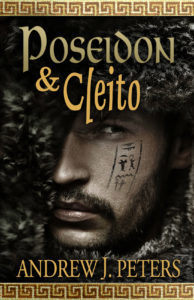
Ok. So maybe that’s a slight overstatement. But thanks to the incoming presidential administration, facts no longer matter, right? What matters is that you say things with conviction. And exclamation points!
From Trump Headquarters: Andrew J. Peters’ Poseidon and Cleito just made its worldwide release, and it’s going to be big. Really big. That’s what I’m hearing. I don’t know for sure, but it could be the biggest fantasy release in history, ever. All I’m saying is that’s what people are telling me. It’s a spectacular story. Maybe the most spectacular story ever written at any time, anywhere in the world. Are you ready for it? Because I’m telling you: this is really amazing, and you don’t want to miss it!
Nielsen Bookscan Fact-checker: Actually, initial reports from Poseidon and Cleito’s early release on Kindle Exclusive suggest modest sales. It’s true the book went on sale in December at some of the largest retailers in America, including BN.com, iBooks, and Kobo, but to say it’s available “everywhere” is an exaggeration and therefore inaccurate.
Trump Headquarters: Crooked Nielsen Bookscan is totally biased! Such nasty people! They’ll say anything to get attention for their failing company. Losing subscribers by the millions. Weak! Sad!
Yes, I’m writing a press release for my latest book using split personalities, and I could be descending into madness. But you know what? That doesn’t mean you shouldn’t buy the book!
In case you haven’t heard, Poseidon and Cleito is a re-imagined portait of the man who became one of the most important gods in classical mythology, and an illumination of his wife who was relegated to the margins. My earlier works (The Seventh Pleiade and Banished Sons of Poseidon) were concerned with the last days of Atlantis. Poseidon and Cleito explores the origin of the legend, and since the action takes place several thousand years earlier, you certainly do not need to have read the other books.
Now, what are the critics saying? Kirkus calls the book: “A fresh twist on an old sea myth, complete with magic, intrigue, and plenty of old-school adventures.” From an Amazon reviewer YouThere: “Peters successfully delivers a richly detailed and intriguing version of the origins of Poseidon and Cleito. Highly recommended for fans of Greek mythology and vivid storytelling.”
No word yet from the New York Times or Booklist, but hey, it’s early.
You can pick up the book for the very reasonable price of $5.99 from Amazon, Barnes & Noble, Kobo or iBooks.
And…if you missed out on Poseidon Week this past August, here’s some extras and backstory about the book!
It’s #PoseidonWeek at andrewjpeterswrites.com
Visual inspiration for Poseidon and Cleito
Exclusively for #PoseidonWeek: An excerpt from the story
#PoseidonWeek: Poseidon through the ages
December 11, 2016
Writing in an age of resistance

I haven’t shared my thoughts on the U.S. presidential election here at my website, though those of you who follow me on Twitter have seen that I have had plenty to say. I also wrote this piece on #BlackLivesMatter and opposing Trump back in July. My political beliefs are not hard to find, and I suspect they have not alienated many of my readers. To me, especially in these times, the stakes for remaining silent dwarf the stakes for speaking out.
We do not know what will happen when the new presidential administration and Republican-controlled congress takes over in January. But we know the Trump/Pence platform is an aggressive plan to deport immigrants, repeal low cost health insurance for the uninsured, turn back environmental protections, and defeat progress with tax reform to the benefit of millionaires and corporations. Those are scary proposals that must be fought to protect human rights and economic justice, and sadly they are familiar themes in American politics.
What I see as an immediate threat, already underway through Trump’s campaign and post-election, is the de-legitimization of facts and pluralistic values, with the specific goal of disempowering immigrants, people of color, women, and to an extent LGBTs. That’s also a familiar strategy in American politics, but I don’t think we’ve ever seen it used to so blatantly, at least in my lifetime. Trump was an amazingly successful provocateur of White American self-interest, perhaps particularly among working-class, rural voters, though that’s a narrative of the election that I suspect is overplayed (in many states, Whites of all income levels went for Trump).
The economy is a disaster and only going to get worse.
Illegal immigrants are pouring over our borders, stealing our jobs, and endangering our lives with crime and terrorism.
Universal health care is an unfair burden on the middle class that is crippling our economy.
Rampant voter fraud in (Black) inner cities is disenfranchising White Americans.
None of those talking points are true, but the truth did not matter. I’m not sure whether we should be demanding a recount or demanding a psychological autopsy on Trump voters. I suspect we would find that White economic and social insecurity pushed Trump to the winning side of the Electoral College.
That insecurity was fomented by racially-charged misinformation. And it’s incredibly dangerous. We have already seen White anger acted out post-election through white nationalist graffiti and attacks on Muslim Americans and Black Americans, a disturbing trend across the country and right where I live in New York City. The triumph of fear-mongering propaganda has prompted many to wonder if we are on the cusp of a fascist regime, as discussed by political observer, linguist and author Noam Chomsky. Trump’s so-called “populist” and more so nationalist and anti-immigrant campaign has counterparts in Europe. It has created anxiety around the world.
In author circles, an interesting question that has emerged is how can literature help during times of oppression and resistance? Author Vaughn Roycroft wrote about the subject back in September in an excellent POV piece for Writer Unboxed titled: “The Importance of Storytelling in Turbulent Times.” In that article, Roycroft talks about the power of storytelling to bring about collectiveness:
“Stories inform our worldview, and create a common basis for our interconnectedness. Our stories define us. And it’s what we share that defines our humanity.”
Humanity. That’s something we definitely need more of. Literature reaffirms our humanity, and not just through explicitly political stories. Stories introduce us to different worlds, different people, different perspectives. They enhance interpersonal understanding. They help us see ourselves in different ways. Stories can be powerful tools to expand the notion of self-interest. They take us on a journey wearing someone else’s shoes, and have the potential to build empathy and relatedness, which is key to recognizing the benefit to the individual when all of us are treated fairly and with dignity.
This question of the role of literature came up at the recent Queens LGBT Book Night, where I was asked, along with the other panelists, what can books and writing do for us as we resist and protest?
I think the most important thing that anyone can do, author or otherwise, is join the movement to fight misinformation with truth and stand up for the dignity of Muslims, people of color, women, immigrants and LGBTs. Writers can make important contributions to that effort by virtue of our ability to articulate well-reasoned arguments, as well as our ability to research. Journalist Lauren Duca recently wrote an exceptional op-ed for Teen Vogue: “Donald Trump is Gaslighting America,” for example.
I also talked about the role of literature in nurturing the soul. Many of us are wounded by this election. It was a rejection of democratic values. It was an affirmation of racist, xenophobic, and misogynistic rhetoric, and it left many of us wondering: how safe am I?
I don’t think that literature can solve that problem, but I do know it can renew us and make us stronger and better fortified to fight. When I read a good story, and as a fantasy author, I’m often reading fantasy, something happens inside me that is a bit hard to describe. Whether it’s through wonder, surprise, pathos, or the intelligence of ideas, I feel a sense of hopefulness. Maybe it comes from experiencing the power of possibilities. Unlikely heroes can triumph. Even when everything is stacked against us, we can solve epic problems. We have the ability to understand and have impact on our world. In social work, borrowing from one of my heroes Lawrence Shulman, we call it “strength for change,” the belief that “no matter how hopeless it seems, there’s always a next step.”
I’m not saying necessarily we need more stories with happy endings. Oftentimes, the most satisfying stories leave things in a gray area, which I find is true to the complexity of the world. It’s up to the reader to imagine what happens next. Yet by inspiring us to imagine, we are empowered. And I guess that’s what I mean by literature nurturing the soul. It activates the imagination and gets us in touch with our essential optimism. Surely that’s not a little thing as we resist the wave of reactionary furor that has beset our country. We need to refuel our belief in hope.
December 1, 2016
On the state of #Ownvoices in queer SFF: A look at popularity, library recs and awards
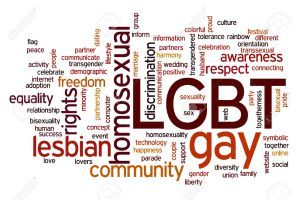
Most of us would agree that diversity and inclusion are good things. Perhaps especially in science fiction and fantasy (SFF), a white, cisgender, heterosexual male perspective has dominated the genre since the days of Jules Verne and H.G. Wells, and largely neglected fully-formed portrayals of women, people of color, and LGBTs, among other marginalized groups. Cultural marginalization creates political marginalization, and vice versa, so when all we see and read in SFF are worlds with white, male heroes, often populated solely by white people, it reinforces the belief that the dominant culture is superior, and the only norm; the rest of us are the “others.”
That tradition has changed somewhat through the success of celebrated female authors like Ursula LeGuin and Margaret Atwood and authors of color like Octavia Butler and Samuel Delaney. Recently, N.K. Jemisin became the first black, female author to win the Hugo award for a novel, and three of the five titles that were shortlisted in 2016 were written by women. The annual output of SFF has become more diverse in terms of gender, ethnicity, sexuality and other characteristics, but surveys show we still have a long way to go to bring representations of people of color, women, and LGBTs out of the margins.
It’s hard to find data outside of the YA world, where, for good reason, a lot of the attention to diversity has been placed. The YA data I did find may or may not reflect the state of diversity in SFF as a whole.
For example, the Cooperative Children’s Book Center tracks a rising number of SFF books about people of color over the past few years, though in the last recorded year (2015), those books represented a little less than fifteen percent of all SFF releases. Regarding LGBT diversity, Malinda Lo’s most recent (2014) LGBT YA by the Numbers also showed a growing, yet still disappointing number of SFF releases about LGBTs: a total of seventeen in 2014.
CCBC also tracks how many SFF books are written by people of color, and that share is even smaller at ten percent. That gap in authorship is one of the reasons behind the #OwnVoices hashtag.
Started by YA author Corinne Duyvis in 2015, #OwnVoices was created to uplift books about marginalized groups that are written by authors who are members of that marginalized group. In addition to concerns about depth of characterization and accuracy, Duyvis says her interest in #OwnVoices grew out a collective concern that many minority authors who write about their own communities experience marginalization within the publishing industry, in the form of less recognition, lower advances, and less promotion than their privileged peers who garner kudos for writing diverse characters.
#Ownvoices supporter Ellen Oh tweeted home the point with the example: “Everyone knows Memoirs of a Geisha by Arthur Golden but not Geisha of Gion by Mineko Iwasaki.” In terms of queer SFF, you might say: everyone knows the gay wizard Dumbledore, created by J.K. Rowling, but not the gay wizard Jessex, created by Jim Grimsley (that observation is especially depressing since Rowling didn’t even write the character as gay, but she was lauded for promoting LGBT diversity just by saying she had envisioned him as gay).
Duyvis makes the important distinction that #Ownvoices refers to titles, not the authors themselves, since not all minority authors write about their own communities. It’s also not a campaign against authors outside of minority groups writing about minorities, who are often allies, but rather a campaign for uplifting #Ownvoices titles.
That point is important to me as I segueway into my analysis of #Ownvoices in queer SFF. A good number of authors writing about gay SFF characters, for example, are women, and as I’ve gotten involved in the queer SFF community, I have tremendous gratitude and respect for the many female authors who are my colleagues and my friends and my Twitter and Facebook “buddies.” They are a source of inspiration and have opened up opportunities for me as an author. Maybe it should go without saying, but repeating the point from the paragraph above, my interest in #Ownvoices in queer SFF is not to criticize female authors (or non-gay male authors) who write gay SFF or to suggest that they should not be doing it. I’ve read, and on occasion, participated in online discussions about appropriation and objectification, and I do think those are important conversations for authors and readers to have. The data I compiled, however, does not and is not meant to speak to those issues.
My purpose is to delve deeper into the state of queer diversity in SFF. Good and plentiful portrayals of queer characters are one dimension of progress, and one that many of us would argue could stand for some improvement. But authorship is important to consider as well. Queer authors have historically faced censorship and discrimination in the publishing industry (and beyond) when writing about queer experiences. Authorship is an aspect of diversifying literature that hasn’t been well-explored in a quantifiable way. If efforts to diversify literature seek to promote cultural fairness, I would argue, as #Ownvoices does, then they should acknowledge the differential experiences of privileged and disadvantaged authors who are writing diverse books, and seek to remedy the disparities that exist.
All segments of the queer spectrum need to be considered. I chose gay male SFF as an appropriate starting point because I know that genre most intimately as an author and as a reader, and I also have lived experience as gay man. By compiling some data on how gay SFF #Ownvoices titles fare in the publishing world, my hope is to begin to examine diversity from the perspective of authorship.
It would have been useful to count the number of gay SFF titles published each year by the big houses (Tor, Gollancz, Ace Books) and determine how many were authored by gay men, as a measure of disparity and “status.” Those big house titles have access to trade reviews, wide distribution, marketing, libraries, and awards programs to a far greater extent than small press and self-published titles. Unfortunately, I struggled to find data on the annual output of gay SFF books, and the prospect of researching the many hundreds of releases listed on the publishers’ websites was just too overwhelming; though I’m happy to cheer on anyone who endeavors to do that. 
November 23, 2016
Banished Sons Gets Honorable Mention at the Rainbows!
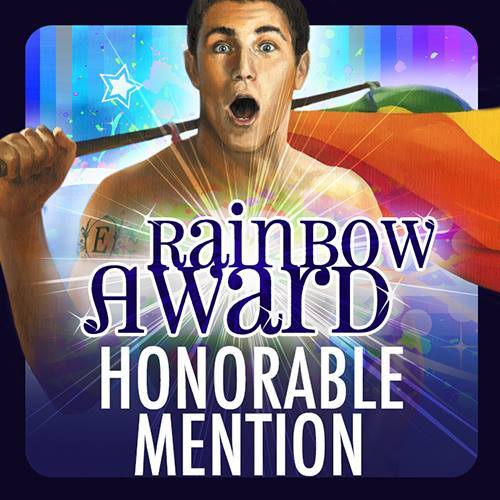
There hasn’t been a whole lot of good news to report since, erm…November 8th. But here’s a little something I just found out about today: Banished Sons of Poseidon garnered an honorable mention at the 2016 Rainbow Books Awards. And it’s still in the running to win or earn a runner’s up spot in the Young Adult category. Those winners will be announced in December.
Here’s the link to Banished Sons’ honorable mention.
Meanwhile, between the day job and being active with the movement to #resist the incoming presidential administration, I’ve been slowly working on the manuscript for the second book in the Lost Histories series, a follow up to The City of Seven Gods. This is always a tough time of year to eke out writing time, but I’m getting it in here and there. I also have a more substantive blog post planned in the upcoming weeks on the subject of #ownvoices in gay fantasy.
Hey! If you haven’t had a chance to pick up Banished Sons of Poseidon, why not give it a try? It picks up on the story of what happened to Atlantis, from a gay teen’s perspective, and I’ve heard from a lot of readers that it works just fine as a standalone. Though you could always start with The Seventh Pleiade too. 
November 10, 2016
History Imagined features an interview with Cleito
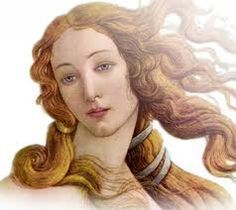
Images of Cleito are hard to find. This is an artist’s rendition of Rhea, mother of Poseidon, that I found on Pinterest. I thought it was also a good prototype for the character.
Historical fiction fan site History Imagined asked me to do an interview with Cleito for their weekly Getting into Character feature. It was a lot of fun playing a James Lipton-style talk-show host to the obscure queen of Atlantis, illuminated for the first time in my recent release Poseidon and Cleito. She was one of my very favorite characters to write, and as I hear, one of the favorites among readers. Smart, eloquent, dry-witted, and maniacally determined, she is a force to be reckoned with in the story, straddling the line between hero and villain.
You can read the interview here.
History Imagined is the creation of authors Linda Bennett Pennell, Caroline Warfield, and Becky Lower. Their blog explores many facets of historical fiction with a particular interest in strong portrayals of women.
October 26, 2016
Queens LGBT Book Night 2016

Something very cool happening in November: I’ll be part of the second annual LGBT Queens Book Night, joining a fantastic group of local authors for readings, discussion, Q&A, and general, queer literary hijinks.
If that doesn’t sound fabulous enough to interest you, I thought of a number of reasons why you and every one of your friends, family members, neighbors, coworkers, acquaintances, and Twitter crushes should go.
You’ll hear a preview reading from my just-released title The City of Seven Gods, which is sort of The Persian Boy meets Game of Thrones if they brought along their buddy Gods of Egypt and some hot dude named Gilgamesh showed up, forcing everyone to reconsider their motivations. Now you see why I’m lousy at elevator pitches. Never fear, my talking points get better.
You probably know what you’ll get from me, but there’s something for literarily everyone on the panel. Joe Okonkwo is a Pushcart Prize nominee, and his début novel Jazz Moon is the story of a black, gay poet set against the Harlem Renaissance and Jazz Age Paris. Deborah Emin is the author of the Scags series, which chronicles the coming of age of a young lesbian in the midwest in the 1950s and 1960s. Our curator and moderator Nancy Agabian is a writer, teacher and liteary organizer, whose work has explored Armenian family history and queerness.
Let’s face it. Queer literature is transcendant, subversive, ecstatically affirming, and studies show that it reduces aging by 25-40 percent.
If you’re an aspiring writer, the event is the place to ask us all how we did it, and I promise we won’t be jaded or pompous at all.
Are you single? LGBT community events are a great place to meet that special someone without the shadiness of bars or the pressure of gimmicky dating enterprises. Or, you can double your chances and after the event grab a beer at one of Jackson Heights’ fine drinking establishments.
I’m guessing if you’re here visiting my site, you probably care about the health and sustainability of the LGBT arts community, which creates LGBT visibility, cultural fairness, and political equality, thereby benefiting all of us. LGBT Queens Book Night is an opportunity to think globally and act locally. Coming out to the event supports local writers and builds community!
Last of all, the event is totally free! It’s underwritten by generous sponsors who are listed in the above flyer. You literarily have nothing to lose. (Notice how I cleverly used literarily twice?).
So come on down to Jackson Heights for a great time, and make sure to tell them who sent you (and say hello!).


